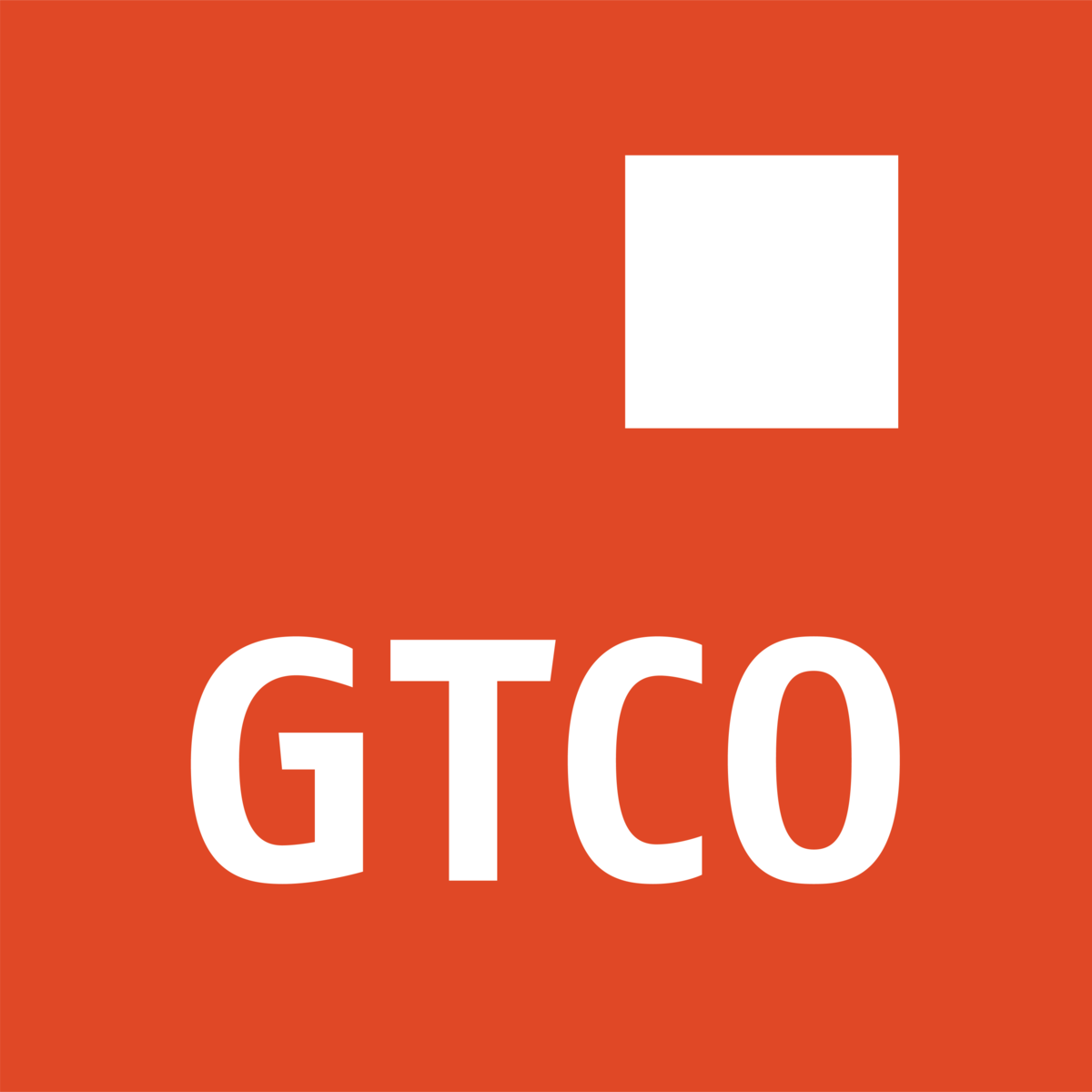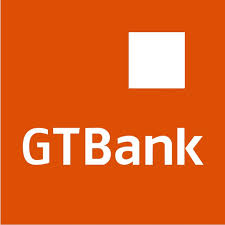brand
Breaking : CBN bows to pressure lifts ban on cement, 42 items and raises dollar supply

 The Central Bank of Nigeria has said it is raising dollar supply in the foreign exchange market, just as it also lifted the ban on 43 items that were previously not qualified for forex at the official market.
The Central Bank of Nigeria has said it is raising dollar supply in the foreign exchange market, just as it also lifted the ban on 43 items that were previously not qualified for forex at the official market.
The decision came after the naira tumbled to 1,050/$ at the parallel market on Thursday, following pressure from international organisations and experts.
The CBN has finally succumbed to pressure and lifted the ban on the importers of 43 items restricted from accessing foreign exchange on its official platform.
It disclosed this in a statement titled, ‘CBN restates commitment to boost liquidity in forex market’, signed by the bank’s Director, Corporate Communications, Isa AbdulMumin, on Thursday.
“Importers of all the 43 items previously restricted by the 2015 circular referenced TED/FEM/FPC/GEN/01/010, and its addendums are now allowed to purchase foreign exchange in the Nigerian foreign exchange market,” the statement said.
The apex bank said it would continue to promote orderliness and professional conduct by all Nigerian foreign exchange market participants to ensure market forces determined exchange rates on a willing buyer – willing seller principle.
It added, “The CBN reiterates that the prevailing foreign exchange rates should be referenced from platforms such as the CBN website, FMDQ and other recognised or appointed trading systems to promote price discovery, transparency, and credibility in the FX rates.
“As part of its responsibility to ensure price stability, the CBN will boost liquidity in the Nigerian foreign exchange market by interventions from time to time. As market liquidity improves, these CBN interventions will gradually decrease.”
The statement said the CBN was committed to accelerating efforts to clear the FX backlog with existing participants and would continue dialogue with stakeholders to address the issue.
It stated, “The CBN has set as one of its goals the attainment of a single FX market. Consultation is ongoing with market participants to achieve this goal. Participants and the general public are to be guided by the above.”
Meanwhile, some Bureau de Change operators who spoke to The PUNCH on Thursday said the dollar traded between 1,025/$ and 1,050/$ in Lagos and Abuja.
A BDC operator in Lagos, Abguadi, said, “The dollar was bought at N1,025/$ and sold at N1,035/$ on Thursday.”
According to another BDC operator, Abdul, “We bought dollar for N1,015/$ and sold it at N1,035/$. The price has been rising.”
A BDC operator, Yusuf, said, “Some BDCs don’t even have access to the forex. Today, we bought the dollar and sold at 1,035/$ and 1,050/$.”
Another BDC operator in Abuja, Ibrahim Yahu, said as of the close of business on Thursday, they were buying at N1.030/$ and selling at 1,045/$.
A forex dealer identified simply as Suraju said, ‘’I buy at N1,030/$ and sell N1,035/$; It is just a difference of N5.’’
However, on the Investor & Exporter forex window, the naira appreciated slightly after closing at 759.20/$ from 766.41/$ on Wednesday.
But the new Governor of the Central Bank of Nigeria, Olayemi Cardoso, also says the new leadership team will review the CBN foreign exchange market policies, corporate governance practices, and monetary policies to reposition the apex bank to achieve its core mandates.
Already, he said the new team members, who resumed fully at the bank a few weeks ago following their confirmation by the National Assembly, were carrying out a comprehensive assessment of the challenges facing the central bank.
According to him, the ongoing assessment of the bank will lead to tweaking or jettisoning of some policies as part of a wide-ranging programme to reform the bank as a catalyst for economic growth and development.
This was contained in a document obtained by our correspondent on Thursday.
The document was titled, ‘Preliminary assessment of challenges facing the Central Bank of Nigeria.’
In the document, Cardoso outlined the challenges facing the CBN, introduced high-level proposals to address reformation challenges while examining the role of a refocused central bank in supporting the economic agenda of President Bola Tinubu.
In the paper, the new CBN governor raised several questions, ranging from how corporate governance failures in the CBN could be addressed, how public and financial systems’ stakeholder confidence could be restored in the autonomy and integrity of the CBN, as well as the need to refocus the central back to its core functions.
He also harped on what should be put in place to revert to evidence-based monetary policies, including the discontinuation of unorthodox monetary policies and foreign currency management, unorthodox use of Ways and Means spending, and developing control limits in the use of Ways and Means in financing public sector deficit.
On the backlog of FX demand, Cardoso emphasised the need for creative financing options for clearing the short to medium-term backlog.
The new central governor also plans to limit the CBN’s fiscal side interventions while proposing responses to addressing inflation and price stability issues.
Cardoso said, “These problem statements need in-depth review by the new Central Bank leadership team to determine what mechanisms are currently working, what can be tweaked or dispensed with and what new tools need to be introduced.”
On how the CBN can be refocused to support economic growth, he said, “The economic policy proposals of the administration identify a set of fiscal reforms and growth targets that will achieve $1.0tn GDP within eight years. In reviewing selected BRICS and MINT countries with large populations and similar developmental characteristics as Nigeria, it is interesting to identify macroeconomic indices that point to Nigeria’s economic trajectory, given the faithful implementation of the proposed economic reforms. In economies bigger than $1.0tn, these indicators include moderate inflation, sizable foreign reserves, and the capacity to rebound from a cyclical economic downturn quickly.”
He added, “Much has been made of past CBN forays into development financing, such that the lines between monetary policy and fiscal intervention have blurred. In refocusing the CBN to its core mandate, there is a need to pull the CBN back from direct development finance interventions into more limited advisory roles that support economic growth.”
He listed the advisory roles as the CBN acting as a catalyst in the propagation of specialised institutions and financial products that support emerging sectors of the economy, facilitating new regulatory frameworks to unlock dormant capital in land and property holdings, accelerating access to consumer credit and expand financial inclusion to the masses; de-risking instrumentation to increase private sector investment in housing, textiles and clothing, food supply chain, healthcare, and educational supplies; and exercising the CBN’s convening power to bring critical multilateral and international stakeholder participation in government and private sector initiatives.
In conclusion, Cardoso said, “It must be emphasised that CBN does not have a magic wand that can be waved at the current economic challenges. The problems facing the bank are large and complex. However, with focused leadership and sustained reforms, it is expected that over time, the country will see gains open economic spaces, attract new investments, create employment, and give our hardworking and talented compatriots an opportunity for a more prosperous future”.
Manufacturers back FG
Speaking exclusively with The PUNCH, the Director-General of the Manufacturers Association of Nigeria, Segun Ajayi-Kadir, commended the decision made by the CBN to lift the ban on imports of the blacklisted items.
According to him, about 200 association members have been adversely affected by the ban that Emefiele imposed.
He said, “We commend the CBN Governor for taking a very pragmatic and far-sighted decision on this matter. You will recall that when the last CBN governor imposed this list of items that are not valid for forex, the association indicated that it was not consulted, and that it was ill-advised. It was ill-advised in that the CBN did not correctly assess the relevance of those items.
“Some of those items represent raw materials that are not locally available, and when that was done, it put more than 200 of our members in jeopardy. It put their survival in jeopardy. Many of them suffered unprecedented low returns in their activities. We indicated that the affected operators needed to be consulted.”
Ajayi-Kadir, who warned that the apex bank had no business meddling in issues bordering on fiscal policy, demanded more reviews to be done to remove more bottlenecks that were imposed on manufacturers by the previous CBN leadership.”
Reacting, the President of the All Farmers Association of Nigeria, Kabir Ibrahim, said removing the forex ban on the items might not influence the seamless importation of food as countries were battling to achieve food sufficiency.
In a telephone interview, the president noted that the festive period would prove effective if the new policy is appropriate or not.
He said, “It is premature to say what will happen as this liberalisation does not mean seamless importation of goods and services as the entire global food system is going through challenges.
“There is no magic wand to stave off the current food inflation rate in Nigeria and it is pretty unwise to purchase grains. For instance, it will be at cross-purposes with any food pricing protocol.
“We should tarry awhile before making definite forecasts as to what will happen between now and Christmas.”
Speaking with The PUNCH, the Chief Executive Officer of the Centre for Promotion of Private Enterprise, Dr Muda Yusuf, said it was a welcome decision of the CBN to discontinue the forex exclusion policy on the 43 items. It is a move in the right direction. It is part of the policy normalisation process.
Yusuf said, “The exclusion of the 43 items was one of the drivers of distortions in the forex market. The exclusion of the items also contributed to the persistent divergence in rates between the official window and the parallel market.
“The exclusion also conflicted with extant trade policy as the items were not under import prohibition in the first place. It was an example of lack of policy coordination under the previous administration.”
Yusuf further stated that the new directive would improve transparency and disclosures in foreign exchange transactions.
Meanwhile, he noted that the CBN should avoid market suppression tendencies, especially outside the I&E window.
He stressed that all policy impediments to forex inflows should be removed.
He stated, “The fiscal authorities should continually monitor the economic landscape to shape the character of fiscal policy measures to regulate imports in line with comparative advantage principles.”
Meanwhile, he added, “We need to worry about the risk of an import surge and also need to upscale the use of fiscal policy measures to boost domestic production and productivity.”
The President, Association of Bureaux De Change Operators of Nigeria, Dr Aminu Gwadabe, said generally, it was a booster aimed at boosting confidence and eliminating uncertainties in the market.
He said, “It entails reforms, compliance with official market rates and liquidity interventions. We at ABCON will continue to partner with the apex bank in achieving its set goals.
“The unbanning of the 43 items will deepen the market and stimulate bilateral trade and inward-looking industrialisation strategies.”
He added, “My call to the CBN is to ensure speedy implementations of the policies. To enhance the buffers, the CBN should pursue a paradigm shift from demand to supply measures to boost the needed liquidity in the market.”
Gwadabe said the CBN should emphasise intervention in the retail end sector where the spikes were most pervasive through the effective pass-through of the BDCs to close the gaps between the official and unofficial exchange rates.
brand
GTCO Plc Releases 2024 Full Year Audited Results …Pays Shareholders Record Dividend of N8.03k for 2024 Financial Year

 Guaranty Trust Holding Company Plc (“GTCO” or the “Group”) has released its Audited Consolidated and Separate Financial Statements for the year ended December 31, 2024, to the Nigerian Exchange Group (NGX) and London Stock Exchange (LSE). The Group reported profit before tax of 1.266trilion, representing an increase of 107.8% over₦ 609.3billion recorded in the corresponding year ended December 2023₦ . This performance reflects not just strong earnings but also the quality and sustainability of our earnings, underpinned by a well-diversified revenue base, robust risk management practice, and disciplined capital management. The Group recorded growth across all financial and non-financial metrics, and continues to maintain a well-structured, healthy, and diversified balance sheet. The Group’s loan book (net) increased by 12.3% from 2.48trillion in December 2023 to 2.79trillion in December 2024, while deposit liabilities grew by₦ ₦ 37.8% from 7.55trillion to 10.40trillion during the same period. Total assets and shareholders’ funds₦ ₦ closed at 14.8trillion and 2.7trillion, respectively. Capital Adequacy Ratio (CAR) remained very robust₦ ₦ and strong, closing at 39.3%, likewise, asset quality was sustained as evidenced by IFRS 9 Stage 3 Loans which closed at 3.5% at Bank Level and 5.2% at Group in December 2024 (2023: Bank, 2.5%; Group, 4.2%) and cost of risk (COR) closed at 4.9% from 4.5% in December 2023. Commenting on the results, the Group Chief Executive Officer of Guaranty Trust Holding Company Plc (GTCO Plc), Mr. Segun Agbaje, said; “Our strong performance for 2024 underscores the resilience and depth of our business, driven by a well-diversified earnings base across our banking and non-banking subsidiaries, all of which are P&L positive. Our capacity to generate sustainable high-quality earnings, maintain strong asset quality, and drive cost efficiencies reflects the soundness of our long-term strategy and disciplined execution. We have also prudently provided for all our forbearance loans, well ahead of the June 2025 timeline, whilst fully accruing for the windfall tax, further strengthening our balance sheet and enhancing financial resilience.He further added; “The total dividend of N8.03k for the 2024 FYE is underpinned by the quality of our earnings and is in line with our long tradition of increasing dividend pay-out year-on year. Looking ahead, we remain committed to building a Financial Services Group that thrives on innovation, operational efficiency, and sustainable profitability. We will continue to deepen our relationships with customers, leverage technology to deliver cutting-edge financial solutions, and accelerate the growth of all our business verticals—Banking, Funds Management, Pension, and Payments—to unlock new opportunities and create more value for our shareholders.”Overall, the Group continues to post one of the best metrics in the Nigerian Financial Services industry in terms of key financial ratios i.e., Pre-Tax Return on Equity (ROAE) of 60.5%, Pre-Tax Return on Assets (ROAA) of 10.3%, Capital Adequacy Ratio (CAR) of 39.3% and Cost to Income ratio of 24.1%.Guaranty Trust Holding Company Plc (GTCO Plc) is a leading financial services group with operations across Africa and the United Kingdom. Renowned for its strong corporate governance, innovative financial solutions, and customer-centric approach, GTCO Plc provides a wide range of banki .5%, Pre-Tax Return on Assets (ROAA) of 10.3%, Capital Adequacy Ratio (CAR) of 39.3% and Cost to Income ratio of 24.1%.Guaranty Trust Holding Company Plc (GTCO Plc) is a leading financial services group with operations across Africa and the United Kingdom. Renowned for its strong corporate governance, innovative financial solutions, and customer-centric approach, GTCO Plc provides a wide range of banking and
Guaranty Trust Holding Company Plc (“GTCO” or the “Group”) has released its Audited Consolidated and Separate Financial Statements for the year ended December 31, 2024, to the Nigerian Exchange Group (NGX) and London Stock Exchange (LSE). The Group reported profit before tax of 1.266trilion, representing an increase of 107.8% over₦ 609.3billion recorded in the corresponding year ended December 2023₦ . This performance reflects not just strong earnings but also the quality and sustainability of our earnings, underpinned by a well-diversified revenue base, robust risk management practice, and disciplined capital management. The Group recorded growth across all financial and non-financial metrics, and continues to maintain a well-structured, healthy, and diversified balance sheet. The Group’s loan book (net) increased by 12.3% from 2.48trillion in December 2023 to 2.79trillion in December 2024, while deposit liabilities grew by₦ ₦ 37.8% from 7.55trillion to 10.40trillion during the same period. Total assets and shareholders’ funds₦ ₦ closed at 14.8trillion and 2.7trillion, respectively. Capital Adequacy Ratio (CAR) remained very robust₦ ₦ and strong, closing at 39.3%, likewise, asset quality was sustained as evidenced by IFRS 9 Stage 3 Loans which closed at 3.5% at Bank Level and 5.2% at Group in December 2024 (2023: Bank, 2.5%; Group, 4.2%) and cost of risk (COR) closed at 4.9% from 4.5% in December 2023. Commenting on the results, the Group Chief Executive Officer of Guaranty Trust Holding Company Plc (GTCO Plc), Mr. Segun Agbaje, said; “Our strong performance for 2024 underscores the resilience and depth of our business, driven by a well-diversified earnings base across our banking and non-banking subsidiaries, all of which are P&L positive. Our capacity to generate sustainable high-quality earnings, maintain strong asset quality, and drive cost efficiencies reflects the soundness of our long-term strategy and disciplined execution. We have also prudently provided for all our forbearance loans, well ahead of the June 2025 timeline, whilst fully accruing for the windfall tax, further strengthening our balance sheet and enhancing financial resilience.He further added; “The total dividend of N8.03k for the 2024 FYE is underpinned by the quality of our earnings and is in line with our long tradition of increasing dividend pay-out year-on year. Looking ahead, we remain committed to building a Financial Services Group that thrives on innovation, operational efficiency, and sustainable profitability. We will continue to deepen our relationships with customers, leverage technology to deliver cutting-edge financial solutions, and accelerate the growth of all our business verticals—Banking, Funds Management, Pension, and Payments—to unlock new opportunities and create more value for our shareholders.”Overall, the Group continues to post one of the best metrics in the Nigerian Financial Services industry in terms of key financial ratios i.e., Pre-Tax Return on Equity (ROAE) of 60.5%, Pre-Tax Return on Assets (ROAA) of 10.3%, Capital Adequacy Ratio (CAR) of 39.3% and Cost to Income ratio of 24.1%.Guaranty Trust Holding Company Plc (GTCO Plc) is a leading financial services group with operations across Africa and the United Kingdom. Renowned for its strong corporate governance, innovative financial solutions, and customer-centric approach, GTCO Plc provides a wide range of banki .5%, Pre-Tax Return on Assets (ROAA) of 10.3%, Capital Adequacy Ratio (CAR) of 39.3% and Cost to Income ratio of 24.1%.Guaranty Trust Holding Company Plc (GTCO Plc) is a leading financial services group with operations across Africa and the United Kingdom. Renowned for its strong corporate governance, innovative financial solutions, and customer-centric approach, GTCO Plc provides a wide range of banking and
non-banking services, including payments, funds management, and pension fund administration. The Group is committed to delivering long-term value to stakeholders while driving growth and development across its markets.Corporate Communications
brand
ZENITHz BANK MAINTAINS SUPERLATIVE PERFORMANCE WITH PBT OF N1.3 TRILLION IN FULL YEAR 2024

 Zenith Bank Plc has announced its audited financial results for the year ended December 31, 2024, delivering significant growth across key performance indicators. The Bank’s impressive performance reflects effective management and pricing of its risk assets, as well as an optimized treasury portfolio, reinforcing its position as a leader in Nigeria’s banking industry.According to the audited financial results for the 2024 financial year presented to the Nigerian Exchange (NGX), the Bank recorded a double-digit year-on-year (YoY) growth of 86% in gross earnings, increasing from N2.13 trillion in 2023 to N3.97 trillion in 2024. This growth was driven by a 138% increase in interest income, supported by investment in high-yield government securities, and growth in the Bank’s loan book.Commenting on the results, Dame Dr Adaora Umeoji OON, Group Managing Director/CEO, stated “This year’s performance underscores our unwavering commitment to innovation and customer-centric solutions. We will also remain focused on deepening financial inclusion, enhancing service delivery, and creating value for our customers and stakeholders.Zenith Bank’s profit before tax (PBT) rose by 67%, reaching N1.3 trillion in 2024 from N796 billion in 2023, driven by a combination of top-line expansion and efficient treasury portfolio management. Net interest income increased by 135% from N736 billion in 2023 to N1.7 trillion, reinforcing the Bank’s strong core banking performance and ability to grow earnings despite macroeconomic headwinds. Non-interest income also grew by 20% from N919 billion to N1.1 trillion. The Bank’s total assets grew by 47% from N20 trillion in 2023 to N30 trillion in 2024, underpinned by a strong liquidity position and effective balance sheet management. Customer deposits surged by 45% from N15 trillion to N22 trillion in 2024, reflecting a historically strong corporate deposits portfolio and a sustained increase in retail deposits. The increase in retail deposits was driven by customer acquisition and the Bank’s strategic focus on low-cost funding.Return on Average Equity (ROAE) declined to 32.5% on the back of the injection of new capital, while Return on Average Assets (ROAA) remained unchanged at 4.1%. The Bank’s cost-to-income increased slightly from 36.1% to 38.9%, despite inflationary pressures. Its Non-Performing Loan (NPL) ratio stood at 4.7%, with a coverage ratio of 223%, underscoring the Bank’s prudent risk management and commitment to maintaining a resilient loan book, ensuring stability and confidence in the Bank’s operations.Given the good earnings performance, the Bank has proposed a final dividend of N4.00 per share, which brings the total dividend for the year to N5.00 per ordinary share. In a significant milestone, Zenith Bank successfully raised N350 billion in capital through a rights issue and public offer, with a subscription rate of 160%, demonstrating strong investor confidence in the Bank’s growth trajectory. The proceeds from this capital raise will be strategically deployed to enhance technology infrastructure, strengthen liquidity, and support the Bank’s expansion into key African markets, unlocking new growth opportunities. The bank remains focused on delivering sustainable growth, enhancing shareholder value, and driving financial inclusion through innovative banking solutions. With its solid capital base and innovative product offerings, the Bank is well-positioned to navigate evolving market conditions while continuing to strengthen its leadership in the Nigerian financial landscape.Zenith Bank’s track record of excellent performance has continued to earn the brand numerous awards including being recognised as the Number One Bank in Nigeria by Tier-1 Capital for the fifteenth consecutive year in the 2024 Top 1000 World Banks Ranking, published by The Banker Magazine. The Bank was also awarded the Bank of the Year (Nigeria) in The Banker’s Bank of the Year Awards for 2020, 2022 and 2024; and Best Bank in Nigeria for four times in five years, from 2020 to 2022 and in 2024, in the Global Finance World’s Best Banks Awards.Further recognitions include Best Commercial Bank, Nigeria for four consecutive years from 2021 to 2024 in the World Finance Banking Awards and Most Sustainable Bank, Nigeria in the International Banker 2023 and 2024 Banking Awards. Additionally, Zenith Bank has been acknowledged as the Best Corporate Governance Bank, Nigeria, in the World Finance Corporate Governance Awards for 2022, 2023 and 2024 and ‘Best in Corporate Governance’ Financial Services’ Africa for four consecutive years from 2020 to 2023 by the Ethical Boardroom. The Bank’s commitment to excellence saw it being named the Most Valuable Banking Brand in Nigeria in the Banker Magazine Top 500 Banking Brands for 2020 and 2021, Bank of the Year 2023 and 2024 at the BusinessDay Banks and Other Financial Institutions (BAFI) Awards, and Retail Bank of the Year for three consecutive years from 2020 to 2022 and in 2024 at the BAFI Awards. The Bank also received the accolades of Best Commercial Bank, Nigeria and Best Innovation in Retail Banking, Nigeria, in the International Banker 2022 Banking Awards. Zenith Bank was also named Most Responsible Organisation in Africa, Best Company in Transparency and Reporting and Best Company in Gender Equality and Women Empowerment at the SERAS CSR Awards Africa 2024; Bank of the Year 2024 by ThisDay Newspaper; Bank of the Year 2024 by New Telegraph Newspaper; and Best in MSME Trade Finance, 2023 by Nairametric
Zenith Bank Plc has announced its audited financial results for the year ended December 31, 2024, delivering significant growth across key performance indicators. The Bank’s impressive performance reflects effective management and pricing of its risk assets, as well as an optimized treasury portfolio, reinforcing its position as a leader in Nigeria’s banking industry.According to the audited financial results for the 2024 financial year presented to the Nigerian Exchange (NGX), the Bank recorded a double-digit year-on-year (YoY) growth of 86% in gross earnings, increasing from N2.13 trillion in 2023 to N3.97 trillion in 2024. This growth was driven by a 138% increase in interest income, supported by investment in high-yield government securities, and growth in the Bank’s loan book.Commenting on the results, Dame Dr Adaora Umeoji OON, Group Managing Director/CEO, stated “This year’s performance underscores our unwavering commitment to innovation and customer-centric solutions. We will also remain focused on deepening financial inclusion, enhancing service delivery, and creating value for our customers and stakeholders.Zenith Bank’s profit before tax (PBT) rose by 67%, reaching N1.3 trillion in 2024 from N796 billion in 2023, driven by a combination of top-line expansion and efficient treasury portfolio management. Net interest income increased by 135% from N736 billion in 2023 to N1.7 trillion, reinforcing the Bank’s strong core banking performance and ability to grow earnings despite macroeconomic headwinds. Non-interest income also grew by 20% from N919 billion to N1.1 trillion. The Bank’s total assets grew by 47% from N20 trillion in 2023 to N30 trillion in 2024, underpinned by a strong liquidity position and effective balance sheet management. Customer deposits surged by 45% from N15 trillion to N22 trillion in 2024, reflecting a historically strong corporate deposits portfolio and a sustained increase in retail deposits. The increase in retail deposits was driven by customer acquisition and the Bank’s strategic focus on low-cost funding.Return on Average Equity (ROAE) declined to 32.5% on the back of the injection of new capital, while Return on Average Assets (ROAA) remained unchanged at 4.1%. The Bank’s cost-to-income increased slightly from 36.1% to 38.9%, despite inflationary pressures. Its Non-Performing Loan (NPL) ratio stood at 4.7%, with a coverage ratio of 223%, underscoring the Bank’s prudent risk management and commitment to maintaining a resilient loan book, ensuring stability and confidence in the Bank’s operations.Given the good earnings performance, the Bank has proposed a final dividend of N4.00 per share, which brings the total dividend for the year to N5.00 per ordinary share. In a significant milestone, Zenith Bank successfully raised N350 billion in capital through a rights issue and public offer, with a subscription rate of 160%, demonstrating strong investor confidence in the Bank’s growth trajectory. The proceeds from this capital raise will be strategically deployed to enhance technology infrastructure, strengthen liquidity, and support the Bank’s expansion into key African markets, unlocking new growth opportunities. The bank remains focused on delivering sustainable growth, enhancing shareholder value, and driving financial inclusion through innovative banking solutions. With its solid capital base and innovative product offerings, the Bank is well-positioned to navigate evolving market conditions while continuing to strengthen its leadership in the Nigerian financial landscape.Zenith Bank’s track record of excellent performance has continued to earn the brand numerous awards including being recognised as the Number One Bank in Nigeria by Tier-1 Capital for the fifteenth consecutive year in the 2024 Top 1000 World Banks Ranking, published by The Banker Magazine. The Bank was also awarded the Bank of the Year (Nigeria) in The Banker’s Bank of the Year Awards for 2020, 2022 and 2024; and Best Bank in Nigeria for four times in five years, from 2020 to 2022 and in 2024, in the Global Finance World’s Best Banks Awards.Further recognitions include Best Commercial Bank, Nigeria for four consecutive years from 2021 to 2024 in the World Finance Banking Awards and Most Sustainable Bank, Nigeria in the International Banker 2023 and 2024 Banking Awards. Additionally, Zenith Bank has been acknowledged as the Best Corporate Governance Bank, Nigeria, in the World Finance Corporate Governance Awards for 2022, 2023 and 2024 and ‘Best in Corporate Governance’ Financial Services’ Africa for four consecutive years from 2020 to 2023 by the Ethical Boardroom. The Bank’s commitment to excellence saw it being named the Most Valuable Banking Brand in Nigeria in the Banker Magazine Top 500 Banking Brands for 2020 and 2021, Bank of the Year 2023 and 2024 at the BusinessDay Banks and Other Financial Institutions (BAFI) Awards, and Retail Bank of the Year for three consecutive years from 2020 to 2022 and in 2024 at the BAFI Awards. The Bank also received the accolades of Best Commercial Bank, Nigeria and Best Innovation in Retail Banking, Nigeria, in the International Banker 2022 Banking Awards. Zenith Bank was also named Most Responsible Organisation in Africa, Best Company in Transparency and Reporting and Best Company in Gender Equality and Women Empowerment at the SERAS CSR Awards Africa 2024; Bank of the Year 2024 by ThisDay Newspaper; Bank of the Year 2024 by New Telegraph Newspaper; and Best in MSME Trade Finance, 2023 by Nairametric
brand
Fidelity Bank Equips Entrepreneurs for Global Trade Success with EMP 18


L-R: Prof Frank Ojadi, Director, Export Management Program, Lagos Business School; Stella Nwuke, Team Member, Export & Agriculture Division, Fidelity Bank Plc; Emem Bassy, Managing Partner, Peony Dynamic Resource Limited; and Emmanuel Nwalor, Team Lead, Export & Agriculture Division, Fidelity Bank Plc; at the closing ceremony of the 18th edition of the Fidelity Bank Export Management Programme (EMP 18) held at the Lagos Business School recently.
Tier-one lender, Fidelity Bank Plc, has once again highlighted the importance of promoting non-oil exports as it recently hosted the 18th edition of its dedicated capacity development training tagged Export Management Programme (EMP 18). The programme, which was held recently in Lagos provided a platform for entrepreneurs interested in exploring global trade opportunities to scale and acquire relevant expertise.
Hosted in partnership with the Lagos Business School (LBS), the 5-day intensive program focused on equipping entrepreneurs with the skills and knowledge needed to explore international market opportunities and strengthen their capacity to thrive in the export sector.
“At Fidelity Bank, our strategy to enhance non-oil exports is guided by the significant opportunities it offers to our customers and the national economy. This is why we offer a comprehensive suite of financial, advisory, and market-access solutions for businesses aiming to engage in international trade.
“Our market-access initiative, EMP, launched in 2016, has trained over 1,600 entrepreneurs. Today, we completed the 18th cohort with high-caliber participants and a 150% oversubscription. This indicates a promising future for Nigeria’s non-oil exports,” explained Isaiah Ndukwe, Divisional Head of Export and Agriculture at Fidelity Bank Plc.
Facilitated by key industry experts in the exports space, EMP 18 took participants through several sessions focused on critical areas in global trade such as Export Finance Instruments, Export Documentation, Accessibility of Export Markets, amongst others.
A key feature of the training was a facility tour of one of Nigeria’s busiest Export Processing Terminals (EPT) located in Ikorodu, Lagos state. The full-day visit, which was anchored by officials of the Nigerian Customs Service (NCS), gave participants a first-hand feel of the necessary procedure and requirements for securing regulatory approval for exporting from Nigeria.
One of the program participants, Patrick Ulayi Awu-Patricks, Managing Director/Chief Executive Officer, Alliance & Frontier Limited, commended Fidelity Bank for its leadership in deploying capacity-building initiatives in the non-oil exports sector. In a discussion with journalists, he stated that EMP 18 provided invaluable exposure to the opportunities in the export business noting that, “There are lots of non-oil exports opportunities and entrepreneurs must be able to identify and capitalize on these to be able to play effectively in the international trade space. This course has given me insights into the power of data which is essential for strategic decision-making.”
Ranked among the best banks in Nigeria, Fidelity Bank Plc is a full-fledged Commercial Deposit Money Bank serving over 8.5 million customers through digital banking channels, its 255 business offices in Nigeria and United Kingdom subsidiary, FidBank UK Limited.
The Bank is the recipient of multiple local and international Awards, including the Export Finance Bank of the Year at the 2023 BusinessDay Awards; the Banks and Other Financial Institutions (BAFI) Awards; Best Payment Solution Provider Nigeria 2023; and Best SME Bank Nigeria 2022 by the Global Banking and Finance Awards. It was also recognized as the Best Bank for SMEs in Nigeria by the Euromoney Awards for Excellence 2023 and the Best Domestic Private Bank in Nigeria by the Euromoney Global Private Banking Awards 2023.
-

 news4 years ago
news4 years agoUPDATE: #ENDSARS: CCTV footage of Lekki shootings intact – Says Sanwo – Olu
-

 news6 days ago
news6 days agoUpdate : Fubara ordered bombing of Rivers Assembly, I am not under duress I resigned, Says ex-Rivers HoS Nwaeke
-

 news1 year ago
news1 year agoEnvironmental Pollutions : OGONI COMMUNITY CRIES OUT, THREATENS TO SHUT DOWN FIRSTBANK,SHELL OIL COMPANY OPERATIONS FOR NOT PAYING COURT AWARD
-

 news3 days ago
news3 days agoBreaking : TInubu appoints Bashir Ojulari as new CEO group of NNPC and GMD mele kyari get sacked, Says Onanuga
-

 interview4 days ago
interview4 days agoNIGERIA MECHANIZED AGRO EXTENSION SERVICE PROJECT, A STRATEGIC MOVE TO ALLEVIATE POVERTY – DR. AMINU ABDULKADIR
-

 news4 days ago
news4 days agoTinubu commended Nandap for her leadership, extends Comptroller-General tenure till 2026, says Onanuga
-

 brand1 week ago
brand1 week agoGTCO Plc Releases 2024 Full Year Audited Results …Pays Shareholders Record Dividend of N8.03k for 2024 Financial Year
-

 brand1 week ago
brand1 week agoZENITHz BANK MAINTAINS SUPERLATIVE PERFORMANCE WITH PBT OF N1.3 TRILLION IN FULL YEAR 2024


